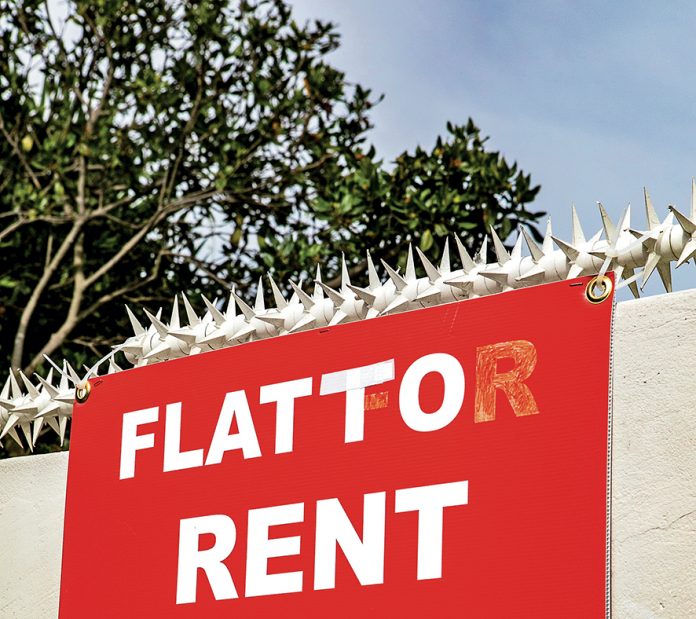While homebuyers are feeling the pinch of yet another interest rate increase, landlords are reaping the fruits of the resilient rental market as residential tenants continue to pay their rentals despite facing economic challenges.
The SA Reserve Bank’s Monetary Policy Committee (MPC) raised the benchmark repo rate by 75 basis points to 7% on Thursday, bringing the prime lending rate to 10.50% from 9.75%.
The repo rate is the interest rate at which the Reserve Bank lends money to commercial banking groups. The increase in the repo rate has influenced the prime lending rate that commercial banks charge when they lend to their clients.
The Bank has had to contend with runaway inflation for several months, with the October inflation print coming in at 7.6%, which is above the central bank’s target band of 3%-6%. Inflation in South Africa has breached the upper limit (6%) of the central bank’s target range for six consecutive months.
The staggering hikes in inflation and repo rate cuts deep, but their impact on the rental market still allows for growth, according to Ooba Group CEO Rhys Dyer, who said it is still a good time to invest in property.
“While this interest rate hike will have a dampening effect on the residential property market and places further strain on consumers, the silver lining is that it appears that progress is being made in containing inflation both locally and globally. It also narrows the chances of significant rate increases taking place in 2023,” Dyer said.
“Important to remember is that 2020 and 2021 saw some of the lowest interest rates recorded in decades. The long-term historical interest rate in South Africa averaged 11.98% over the past 25 years and we are still well below this,” he added.
Dyer said it is still a good time to invest in property because the revised interest rate remains the best experienced over the past 25 years. He explained that high-interest rates slow new demand for property resulting in lower prices, “meaning it is still a buyer’s market”.
Dyer said it is still advisable to invest in property because as interest rates hike, banks compete for loan business by “approving home loans of attractive terms” adding that property prices are still affordable across the country.
According to Dyer, the hikes are good news for property investors looking at buy-to-rent options.
“Investors are able to cash in on the demand from a new wave of tenants – those who have chosen not to buy because they’re sensitive to the interest rate. Ooba’s stats show that the national rebound in demand for investment/buy-to-rent properties continues – rising to +8.1% (three-month moving average) of total applications in October 2022.
“Homebuyers are still able to take advantage of the positive lending environment and ease their affordability concerns by shopping around for their home loan. Our research shows that homebuyers who only obtain a single home loan quote will repay their home loan at an interest rate that is on average 1.03% (103 basis points) higher than those who obtained multiple quotes. This puts money back into the pocket of consumers,” Dyer explained.
However, Dyer has also cautioned consumers to cut back on all non-essential expenditures and adjust their budgets.
“The interest rate cycle will always be one that is out of our control and fluctuations are to be expected. The best advice that I can give is to take charge of your financial wellness over this period. Remember, overspending and stretching yourself beyond what is financially viable will impact your credit score and general affordability.”



